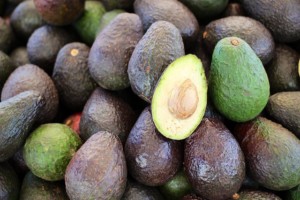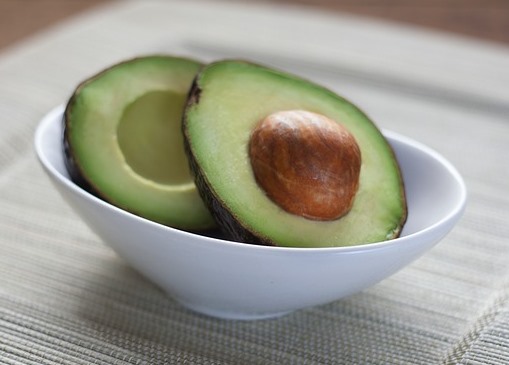Avocados are a fruit in the berry family. They have very little carbohydrate and contain 4 grams of protein, which is the highest for any fruit. You can use them as a healthy, plant-based fat in many culinary applications from toast to sandwiches to dip.
Avocados are moderate to rich in B vitamins, Vitamin K, and Vitamin C. Half an average avocado contains approximately 160 calories, according to the USDA. Although 75% of those calories are from fat, most of the fat is monounsaturated. According to the Academy of Nutrition and Dietetics, monounsaturated fats improve blood cholesterol levels, which can decrease your risk of heart disease.
There are many other names for avocados, but one of the most entertaining is “alligator pears.” The shape of an avocado, along with the color and texture of its skin, make this a fitting nickname. Fuerte, Choquette, Sharwil, Rincon, and Hass are all different types of avocados. Hass are one of the most common. Avocados contain phytosterols, cartenoid antioxidants, omega-3 fatty acids and polyhydroxylated fatty alcohols, all of which fight inflammation.
Avocados don’t ripen until they are off the tree. Store ripe avocados in a plastic bag in the fridge, where they’ll keep from three to five days. Once cut, exposure to air will turn the flesh of the avocado brown. To avoid this, at least temporarily, try one of these tricks: store the remaining avocado with the pit in place; coat the exposed flesh with lemon or lime juice; coat the exposed flesh with olive oil; wrap tightly in plastic wrap; or store the cut half slightly submerged in water. The idea is to minimize exposure of the avocado flesh to air.
Five facts you might not know about avocados (courtesy Lisa Andrews, MEd, RDN):
- Avocados grow in pairs on trees and are the Aztec sign for love and fertility.
- Avocados contain twice as much potassium than bananas (987 mg vs 487 mg). Potassium plays an important role in preventing hypertension (high blood pressure).
- Avocados are ripest when the outer skin is black and gives a little bit to pressure when touched with a finger.
- Avocados are traditionally used in guacamole, but can be added to salads or used as a butter substitute in recipes.
- Avocados are an excellent source of heart-healthy monounsaturated fat.
Copyright foodandhealth.com, reprinted with permission.


